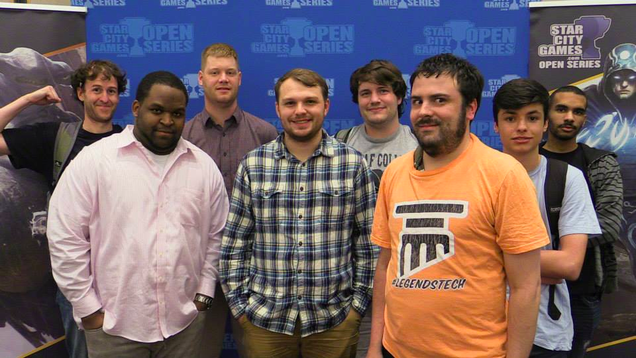
Tauriq Moosa is one of the few, and in my opinion, one of the better, major video game writers who examines cultural issues about video games from the point of view of a Person of Color. He’s a native of South Africa, where he is literally an ethics tutor. This weekend, the totally not racist elements operating in the shadows of GamerGate decided to run him off of Twitter (The Mary Sue’s take, Freethought’s take). This appears to have been an organized, coordinated dogpiling attack. It resulted in people continuing to launch abuse in his direction far beyond the point where a person of color asked people to stop because he felt unsafe. It frequently contained personal attacks or racist commentary. It had precious little to do with actual fair representations of his work.
Once he left Twitter (after warning his followers to watch out for being targeted for being on his friends list – a persistent and valid concern for people who have been targeted by the movement in the past), the worst elements of GamerGate took to publicly congratulating themselves while KiA mods worked tirelessly to remove any sense that the organized abuse brigade originated from there to avoid KiA from encountering the same fate as FatPeopleHate two weeks ago. Most of this grandstanding was taking place in the #IStandWithTauriq, a hashtag they attempted to hijack after it was started by colleagues of Moosa showing their support. Needless to say, much of this hijacked hashtag was also filled with awful shit that is either illogical, false, racist or just plain being assholes for the sake of being assholes.
The free speech I care about the most is the free speech that leads to better games.
Earlier this week, I pointed out that there are many good reasons for good game developers to oppose gamergate beyond being pussywhipped by our spouses, as Mark Kern would choose to imply. Here’s why: I stand firmly on the side of free speech. Games are made better when people can talk freely and openly about games, and can talk freely and openly about how games can be made better. Not all of these ideas are winners. I am, as mentioned previously, not always likely as a designer to reach for the ‘SJW’ answer to any given problem. But I do think that, as Cliffy B said, voices calling for diversity are worth listening to, even if their suggestions are not right for the game you’re working on.
“It’s one of those things where diversity, even at the studio level, it just makes for a more interesting environment,” Bleszinski says. “Apart from that making sense just in general, financially it makes sense…. As a capitalist, even if I didn’t care about diversity — which I do — I want everybody’s money, of all walks of life,” Bleszinski says. “I want an Asian person to see a character who they feel like they can rally behind. And then maybe they want to spend money on that too.”
Tauriq Moosa is one of those voices, and he’s written consistently on the topic. Sometimes I agree with him, such as his excellent article about race in Rust and Witcher 3. Sometimes I don’t. But his writing is always insightful and inspires deep thinking. It’s exactly the sort of writing you want from your gamer press, if you actually care about the state of the art of the games industry to create new genres and expand their reach, which is somethign that all game developers and true lovers of the art and craft should care about.
There is a misconception that GamerGate is about harassment. GamerGate is not about harassment any more than its about ethics in games journalism. What GamerGate is about is silencing the point of view of progressive critics of games (i.e. ‘SJWs’ who care about feminism and diversity in games in particular). Harassment and bullying , though – these are the tools in the toolbox that some gamerGaters use, as they believe in using any means necessary to meet their goals. This particular episode contained plenty of publically available gloating about the issue, as well as plenty of awful stuff plainly visible in some of the bigger names of the #GamerGate movement on Twitter.
This particular incident had the whole playbook on display.
1. Be thin-skinned to a ludicrous decree, best done by misrepresenting your opponent’s argument. GamerGate misrepresented his arguments constantly. As one example, they claimed that this article accuses the game Witcher 3, or the game makers, as being racist, when in fact it’s a discussion about how game developers fall into patterns and don’t think about the implications of their decisions. Or as someone he quotes in the article says:
“It’s not that anyone on the Dragon Age team is willfully racist or malicious to players; it’s simply that someone who doesn’t have the lived experience of dealing with racism as a person of color would simply not think about these things.”
This is not ‘how the Witcher 3 is racist’. It’s a discussion about how dev teams frequently can and do make decisions that limit the reach and power of their games because they lack perspective about race. Incidentally, this is all completely true, and one of the reasons why more diverse teams are good. Some also jumped down his throat for pointing out that the term ‘PC Master Race’ might be considered offensive to some, and he’s not wrong about that. My twitter feed was full of people trying to claim that he called them all Nazis.
2. Switch to ad hominem attacks that have nothing to do with his argument. A huge part of the attack was to demean his expertise by highlighting, for example, a tweet where he said that he didn’t know much about graphics card technology or Steam. It should be noted that their standards in this matter would not be met by, say, Milo Yiannopoulos, Christina Sommers, or Allum Bokhari, cultural critics who are not hardcore gamers, and who in fact didn’t play games at all until they signed up to take advantage of #GamerGate’s neoreactionary culturally conservative leanings. These guys don’t have even a thimble of the game expertise that Tauriq consistently shows in his writing.
3. Throw in some spicy racism – you know, just for fun! No, I don’t think most #gamergaters are racist, but there sure are plenty who are willing to put on the clothes of racism just for LOLs. For what it’s worth, Tauriq is not the first person from Polygon to talk about Witcher 3’s whiteness nor is he the first person from the press to point out that using the term ‘PC Master Race” is somewhat distasteful. For some reason, though, he just seemed to get it worse than the other guys. I can’t imagine what the difference is.
4. Afterwards, claim it never happened. My twitter feed is full of people simultaneously boasting that they managed to drive that pussy Moosa off of Twitter, while at the same time claiming defensively that no harassment happened. He just couldn’t handle criticism! But if you look through the feed, you’ll find there to be little in the way of valid criticism of his views. In fact, what you see are blatant distortions of his views, personal attacks, bullying language, and occasional racist bullshit.
And after this all works, they celebrate.
In a nutshell, this is why GamerGate should be condemned. They are blatantly, BLATANTLY against the freedom of speech of progressive voices in games. I don’t even agree with these progressive voices all of the time – hell, I’ve caught fire from feminists in the past, and my friends think it’s pretty funny that now I’m considered an SJW champion, since I tend to be pretty non-politically correct. But I am a huge fan of academia related to games, and I’m a huge fan of sites like Polygon and Rock Paper Shotgun who look at games from a new angle. These authors may not always be right, but they do tend to make me reconsider my biases, and find ways to grow and evolve my design.
Games criticism and commentary is good for the industry. Game designers can always feel free to ignore the Tauriqs and Anitas of the world, but the games we make are typically richer from giving it the consideration. People who try to silence these voices — and then dance in glee when they’ve succeeded — are the enemies of free and open discourse about the art of science of making games, and they are the enemies to progress in the field of game design.



Recent Comments